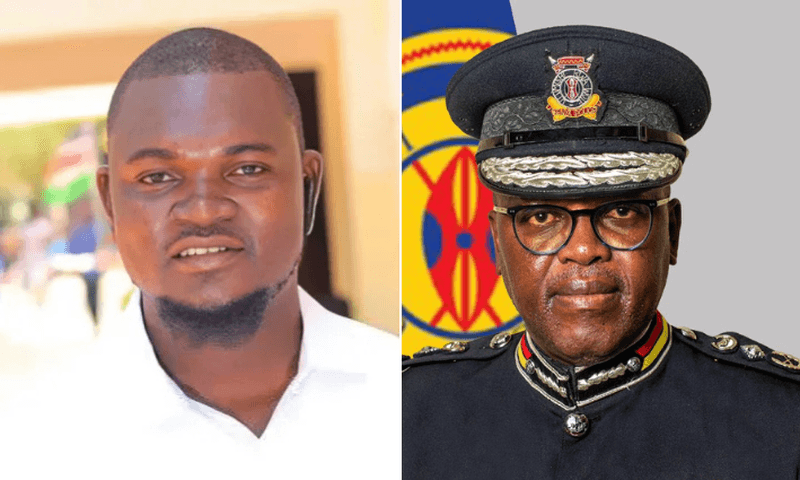We're loading the full news article for you. This includes the article content, images, author information, and related articles.
The High Court in Nairobi has refused to dismiss a petition seeking the suspension of Deputy Inspector General Eliud Lagat, linking him to the death of blogger Albert Ojwang. The ruling signals potential constitutional implications for public office holders.

The High Court in Nairobi has declined to dismiss a petition seeking the suspension of Deputy Inspector General (DIG) Eliud Lagat from office. The petition, filed by London-based activist Eliud Matindi, links Lagat to the death of blogger and teacher Albert Ojwang, raising questions about constitutional violations by a public officer.
Justice Chacha Mwita, delivering the ruling on Friday, October 3, 2025, stated that the petition presented constitutional issues rather than employment disputes. “As a matter of fact, there is no employer-employee relationship issue in this petition except the constitutional legality of Lagat’s action. That is, the petition challenges what the petitioner perceives as constitutional violations,” Justice Mwita noted.
The petition by Eliud Matindi specifically seeks orders to suspend DIG Lagat. Matindi's legal action stems from allegations connecting Lagat to the death of Albert Ojwang, a blogger and teacher. The court's decision to proceed with the petition indicates that the judiciary views the claims as substantive enough to warrant further consideration under constitutional law.
This development could significantly influence public debate surrounding accountability for state officers and the execution of policy within the National Police Service. Legal experts suggest the case may set a precedent for how allegations of constitutional breaches against high-ranking officials are handled. Stakeholders are now urging clarity on the timelines for the petition's progression, potential costs involved, and the safeguards in place to ensure a fair process for all parties.
Civil society organisations and human rights advocates are likely to view the court's decision as a step towards greater accountability for public officials. Conversely, the National Police Service and other government agencies will be keenly observing the proceedings, as the outcome could impact the operational independence and public perception of law enforcement leadership.
The continuation of this petition carries several risks and implications. For DIG Lagat, it means ongoing scrutiny and potential damage to his professional reputation, regardless of the eventual outcome. For the National Police Service, it could lead to questions about leadership integrity and internal oversight mechanisms. More broadly, the case highlights the persistent challenges of ensuring accountability for alleged abuses of power within state institutions.
The specific details of the alleged link between DIG Lagat and Albert Ojwang's death have not been fully elaborated in the court's initial ruling. The timeline for the full hearing of the petition and the nature of evidence to be presented remain unknown. The potential remedies sought by the petitioner, beyond suspension, are also yet to be fully disclosed.
Observers will be watching for the next steps in the legal process, including any dates set for substantive hearings and the arguments presented by both the petitioner and DIG Lagat's legal team. The public's reaction and any statements from the National Police Service or government officials will also be key indicators of the case's broader impact.
This case is related to broader discussions in Kenya concerning police accountability, human rights, and the protection of journalists and activists. It echoes past instances where public officials have faced legal challenges over alleged misconduct.
Keep the conversation in one place—threads here stay linked to the story and in the forums.
Sign in to start a discussion
Start a conversation about this story and keep it linked here.
Other hot threads
E-sports and Gaming Community in Kenya
Active 9 months ago
The Role of Technology in Modern Agriculture (AgriTech)
Active 9 months ago
Popular Recreational Activities Across Counties
Active 9 months ago
Investing in Youth Sports Development Programs
Active 9 months ago